Top Class Actions’s website and social media posts use affiliate links. If you make a purchase using such links, we may receive a commission, but it will not result in any additional charges to you. Please review our Affiliate Link Disclosure for more information.
As food insecurity increases in the U.S., a federal judge has blocked moves by the Trump administration to kick hundreds of thousands off the Supplemental Nutrition Assistance Program (SNAP).
In a ruling filed Oct. 18, Judge Beryl A. Howell vacated the U.S. Department of Agriculture’s (USDA) proposed rules on the food stamp program, calling them “arbitrary and capricious.”
The USDA’s proposed changes to SNAP benefits “radically and abruptly alters decades of regulatory practice,” Judge Howell said, “exponentially increasing food insecurity for tens of thousands of Americans.”
Referencing rising food insecurity in the U.S. during the pandemic, Judge Howell said the USDA’s proposed rule did not consider the potential impacts.
“Despite the agency’s blinkered effort to downplay or disregard the predicted outcomes of the Final Rule, the backdrop of the pandemic has provided, in stark relief, its procedural and substantive flaws,” Judge Howell said.
These changes proposed by the USDA to the SNAP benefits program were set to begin April 1, 2020, but Judge Howell blocked it with an injunction, NPR reported.
Initially proposed by the USDA in December 2019, the so-called Final Rule requires that recipients, after three months of benefits, work 20 hours a week to remain eligible. It would apply to SNAP benefits recipients 18 to 49 years old who are without children and are not disabled.
A group of 19 states, New York City and the District of Columbia filed a lawsuit in January challenging the proposed requirements, claiming they do nothing to help those suffering from food insecurity.
Food insecurity in the U.S. was already a prevalent problem, even before the coronavirus outbreak.
Under the proposed new regulations, an estimated 2.2 million households would no longer be eligible, according to study conducted on the issue by the Urban Institute.
“It’s about a 9.4 percent reduction in the number of people participating and about an 8 percent reduction in overall benefits,” senior Urban Institute fellow Laura Wheaton, who conducted the study, told NBC News.
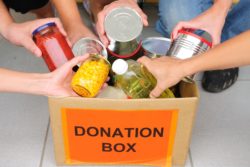
The USDA failed to consider vulnerable populations and state needs in the process of creating these new SNAP benefits rules, Judge Howell said in her ruling to vacate.
Despite the USDA receiving “hundreds” of comments about its “disparate impact” on vulnerable populations, the agency “kicked the can down the proverbial road” by citing a lack of demographic data as a reason, Judge Howell said.
The USDA’s “recognition of the disparate impact on protected groups, without any meaningful discussion … points to the agency’s failure to consider … important aspect[s]” of the Final Rule.
Furthermore, the USDA’s proposed rules on SNAP benefits failed to consider state burdens regarding sorting out who’s qualified and who’s not. The proposed rules would allow work waivers in states with 6% unemployment or higher.
“Commenters repeatedly raised alarms about the downstream administrative costs to the States likely to result from its significant changes to the waiver process,” Howell said.
Even more, according to Judge Howell’s ruling, the USDA’s commenting process on the proposed changes in SNAP benefits requirements is reason enough to vacate. The ruling explains how the USDA failed to provide details and specifics on provisions of the rules, in addition to not providing ample notice on the SNAP benefits changes.
“The substantial flaws in USDA’s notice-and-comment process are apparent, requiring that this rule be set aside on this ground alone,” Judge Howell said.
The USDA’s move to require part-time work from able-bodied adults without children is part of President Donald Trump’s “Reducing Poverty in America by Promoting Opportunity and Economic Mobility” executive order signed in April 2018.
“We’re taking action to reform our SNAP program in order to restore the dignity of work to a sizable segment of our population and be respectful of the taxpayers who fund the program,” Secretary of Agriculture Sonny Perdue told NBC reporters during a call.
Since then, the agency has been silent, according to Judge Howell, as to how many people the proposed rule would affect and the food insecurity issues it presents.
The order formally vacates the USDA’s rule and denies the defendant’s “cross-motion for summary judgement.”
While the ruling won’t take effect immediately, the work requirements were suspended until a month after the U.S. coronavirus emergency is declared over, NPR reported.
What do you think of the proposed changes in light of increasing food insecurity due to the COVID-19 crisis? Let us know your thoughts in the comments section below.
Attorneys general from the respective states are the representing counsel in this lawsuit: Xavier Becerra of California, William Tong of Connecticut, Brian E. Frosh of Maryland, Maura Healey of Massachusetts, Dana Nessel of Michigan, Keith Ellison of Minnesota, Aaron D. Ford of Nevada, Gurbir S. Grewal of New Jersey, Ellen F.Rosenblum of Oregon, Josh Shapiro of Pennsylvania, Peter F. Neronha of Rhode Island, Thomas J. Donovan of Vermont, Mark R. Herring of Virginia; New York City is represented by James E. Johnson of The Corporation Counsel.
The Food Insecurity Class Action Lawsuit is District of Columbia, et al. v. United States Department of Agriculture, et al., Case No. 1:20-cv-00119, in the U.S. District Court for the District of Columbia.
Read About More Class Action Lawsuits & Class Action Settlements:








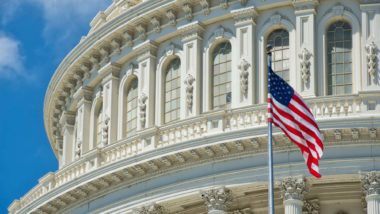
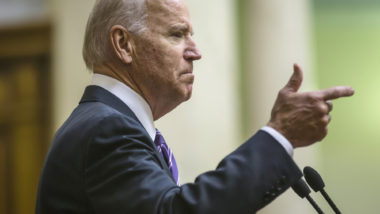
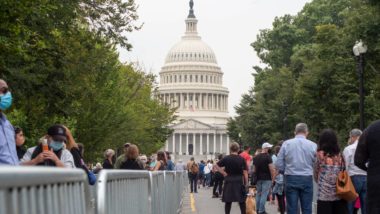
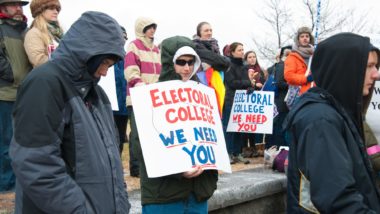


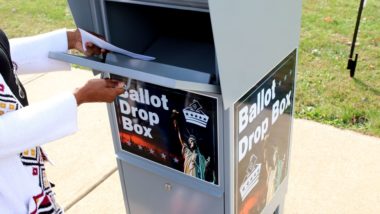

2 thoughts onAmid Rising Food Insecurity, SNAP Benefits Work Rules Vacated
People like Twump have no idea what it’s like to be homeless because of a Pandemic that could have been contained. However, because of no fault of yours, you are homeless, you cannot find a job because there are none to find. Even if you find one, how do you bathe, how do you wash your clothes? These are simple overlooked things that people that have NEVER had to work a day in there life, expect others to magically overcome. Fix the original problem FIRST and the rest will come together on its own. Do SOMETHING about the Pandemic!!!
Ad me